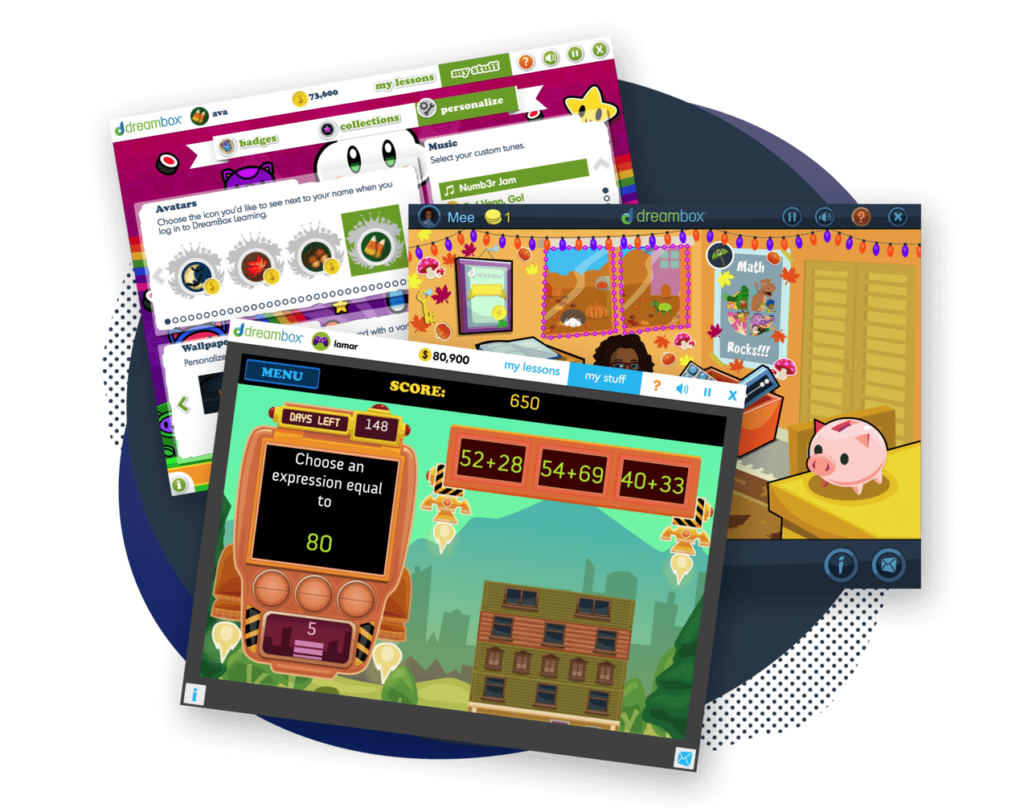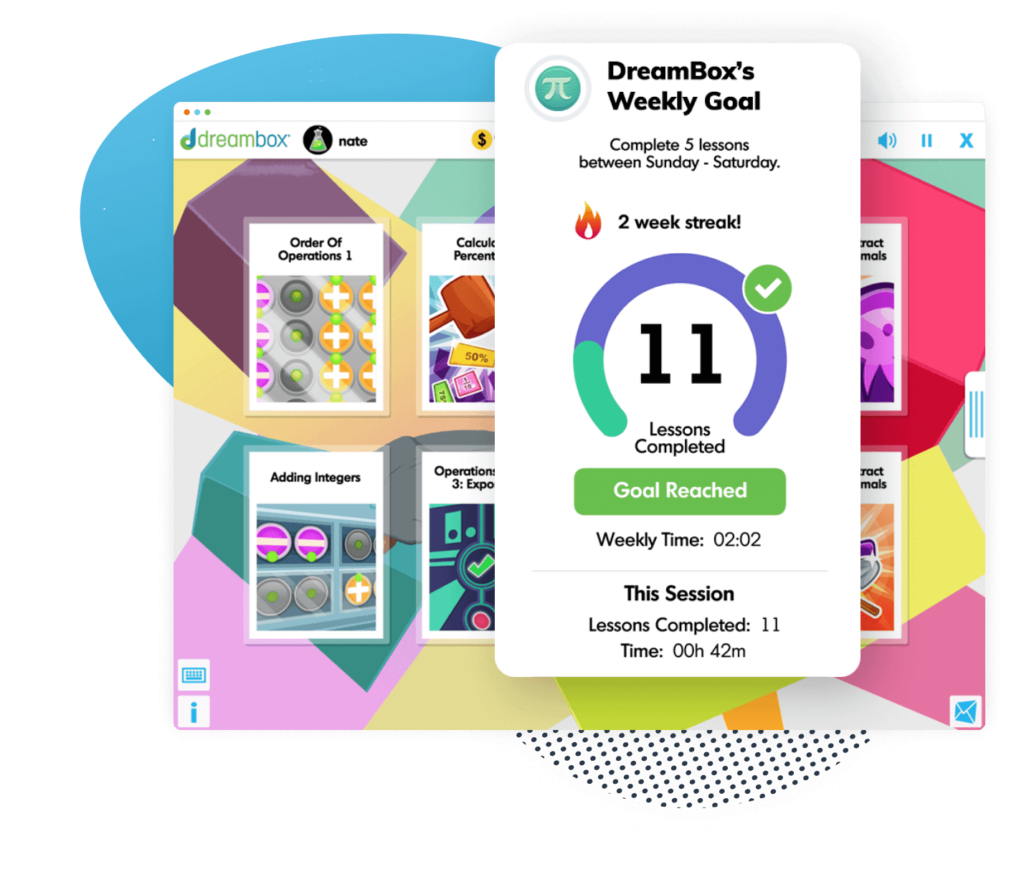20 Best Math Board Games for All Ages
Your little learner will love these fun options!

Author
Jill Padfield
Published:
Oct 2024
Key takeaways
- Board games are a great way to learn – …No matter what learning style your child embraces!
- There are many different games that cover many different topics – With near-endless ways to play, parents can enjoy educational board games suitable for every age level and topic.
- You can find math board games in (sometimes) unexpected places – Some of these spots include big box stores, supermarket toy aisles, Amazon, and other online retailers.
Math doesn’t have to be overwhelming. In fact, many parents make learning fun with math-centered board games tailored to your child’s skill level.
Not sure where to start? No problem. We’ve done the research for you and put together a list of the most comprehensive and fun math board games for your budding math enthusiast. Better yet, they’re all categorized for your learner’s grade level. Read on to learn more.
Counting and number recognition games
This fun math game teaches more than math! As you give your Woozle a delicious snack, Feed the Woozle teaches fine motor skills, spatial awareness, and numerical order. Up to five learners can play at a time, beginning from ages three and up. The goal? Feed the Woozle 12 delicious snack “chips” over the course of the game. It’s simple, fun, and completely stress-free!
This cooperative learning game focuses on numerical order, counting, and math familiarity for younger learners as they work to bring lost baby chicks home. The game board is easy to set up and is perfect for 2-4 players ages three and older.
If you’ve got a Numberblocks enthusiast in your home, this is the game for you. Join the Numberblocks as they race to Pattern Palace and solve problems along the way—focusing on key skills such as counting, ordering, logic, and pattern recognition. Up to 4 players can play this game, and it’s tailored to learners ages three and up.
Several elements of your child’s learning experience (such as problem-solving skills to number recognition) will be tested in this race to the top. Your Pre-K to second grade-level learner will skip, hop, and jump through the forest—counting from 1-20 and collecting gems and treasures to win the game. Up to four players can play at a time, making this the perfect after school game option for your child(ren).
Turn math into playtime with DreamBox Math
DREAMBOX MATH
Get started for FREE today!

Addition and subtraction games
Addition and subtraction are vital skills for kids entering their elementary school years. While flash cards and card games can be helpful, young children often resonate with board games, which are a fun way to learn basic math skills at an approachable difficulty level.
Loved by researchers and classroom experts alike, here are the top games on the market for addition and subtraction on the market:
This Number Bond game is geared towards learners between kindergarten and third grade, and helps build their skills in addition and subtraction–based “number bonds” and equations. Students will be prompted to visually and verbally move through the questions—an approach that appeals to learners of all styles and preferences. The game can also be adjusted for multiplication, making Race to Planet X a relevant learning tool as your learner ages.
This game is so much more than just sums—your students will be able to gain fundamental elementary math skills in a single game! From addition and subtraction to inequalities and more, this game has it all in a fun, easy-to-learn format for up to four players at a time. Questions and concepts in this game are tailored for children ages five to seven.
Perfect for students who are new to elementary math skills, Ocean Raiders is designed to help you master the art of subtraction and fact memorization. It’s compatible with Montessori styles of learning, Common Core concepts, and is considered by many to be a fun take on Chutes and Ladders. Up to four students can play at any time, and concepts used are geared toward children ages five to seven.
Ready for a math race? In this game, learners can run through the “swamp” solving addition problems the whole way through—making an educational and lively play experience for players ages five and up.
Similar to Ocean Raiders, this math game is slightly more advanced; offering trickier addition concepts that would appeal to learners between six and nine years of age. Up to four students can play this game at once.
Mountain Raiders offers cooperative gameplay, little to no learning curve, and fun math memorization opportunities as your children race to escape the “monster.” They’ll walk away with treasure, as well as addition skills and mathematical confidence.
Logic games
Logic games are crucial for helping your child to “cross the finish line” of their higher education experience. These skills are invaluable and directly impact how your child will think and reason as they enter adulthood. Though logic can be a complex topic to cover, these strategy games are the perfect way to introduce younger students to fundamental concepts and math fun.
This logic game is perfect for parents who are looking for cooperative STEM opportunities for their students. The goal? Adopt cute pets and care for them using mental math skills, multiplication, and division steps. The game is great for children between five and nine years old, and can be played by up to four learners at a time.
Complete with bad drawings, a healthy dose of humor and puzzles that your learner will love, this unique resource brings board game ideas and mathematical concepts into a book. Students can either play by themselves, in a group of up to four friends or parent(s), and learn logic, reasoning and other pre-highschool skills.
This unique game teaches logic, reasoning and spatial relationships by challenging students to “take over” the board using uniquely shaped blocks of their given color. Your learner will enjoy competitively “blocking” opponents in as they think on their feet, experimenting with strategy creation and execution as they go. The game is suitable for students (ages 7+) and adults alike, and can be played by up to four players at a time.
In this game, your student has a single goal: Getting their robot to a single spot on the game board as efficiently as possible. The catch? There are multiple ways to do this. This game requires critical thinking, logic, and estimation, is suited for older students (age nine and older), and can be played by two or more people at a time.
Not only is this math game really cool, it’s also aligned with Common Core curriculum standards, thus allowing you to meet your learners right where they’re at in school. The game is card-based and focuses on word problems, logic skills, and other essential math concepts.

The math program that drives results
Get started today!
DreamBox adapts to your child’s level and learning needs, ensuring they are appropriately challenged and get confidence-building wins.
Multiplication and division board games
Looking for resources for your older student? We have you covered. Here are some favorites, handpicked by our team of experts:
Have your children conquer the mathematical kingdom in this fun board game! They’ll be able to tackle fun challenges, solve math problems, and drive their team forward to beat the enemy math magicians. Questions are tailored to learners eight—11 years of age, and can be played solo or with up to four friends.
This unique math board game challenges your learner to master multiplication and division concepts as they make their perfect pizzas. As your student solves the math problems, they’ll be able to follow the “trail” through the pizza making experience, ending their journey with one seriously perfect pie. This game is best for students in grades 3-5, and can be played by two learners at a time.
Multiplication, division, equation creation, and critical thinking are just a few skills covered by this fast-paced math game! The challenge is to get rid of your cards as quickly as possible, using your math facts, decoder tools, and whip-fast equation creations. Super Math Spy is designed to be played by four people at a time, from ages 8 to 88.
Miscellaneous math skill board games
Looking for games that will help prepare your student for the real world? Try these fun options!
Just as it sounds, this game challenges students to master their money and learn savvy spending skills by saving up doing “chores” for in-game items that they want. While it’s best for kids between five and 11 years of age, older students will also enjoy this game—stepping back into the world of allowance and “practice” money before entering the “real” one.
The game can be played with up to four players at a time. Simply set up, sit back and watch your learner take responsibility for their spending and saving choices!
From balancing a checkbook to dealing with unexpected expenditures, this math game teaches your student to expect the unexpected as they prepare for adulthood. Made by teachers for teachers and parents, this game can be played by up to six players at a time and enjoyed by all ages.
There’s nothing more fun than DIYing your child’s learning experience! Challenge your learner to put their skills into practice with this customizable template, suitable for all ages. There are no rules (except to be accurate), meaning that as many people can play as your child allows.
FAQs about math games
There is a near-endless selection of games related to math on the internet. You can search by skill and find hundreds of options tailorable to your student’s needs. Our favorite types include board, card, and virtual games that can be accessed from your learner’s smart phone or device.
Yes! Known for its fun approach with topics like probability, matching, counting, and statistics, Yahtzee is a simple and strategic add to your math teaching toolkit.
There is no single board game that requires the “most” skills to play universally. Any game that challenges your student and introduces them to more complex concepts falls into this category.
Games like really Good Stuff/Tasty Toppings LLC., The Allowance Game, Pet Me, and Blokus are all fun, fantastic choices for your next party. The best part? They can be played with 4 or more players, meaning your child will spend more time in-game and less time waiting in the wings for their turn.
Take at home math practice to the next level
Empowering parents and educators to make math practice more impactful. Plus, your kids will love it.


